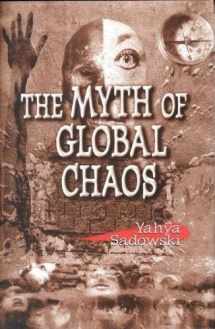
The Myth of Global Chaos
Book details
Summary
Description
When the Cold War ended in 1989, American hopes for a new world order were quickly disappointed. A new wave of violence soon erupted, engulfing places from Rwanda and Somalia to Chechnya and Bosnia. These new "clashes of civilizations," fundamentalist jihads, and ethnic massacres appeared to be more savage and less rational than the long twilight struggle with the USSR, during which Washington's adversary was clearly identified and relatively predictable.
In an effort to understand these post-Cold War conflicts and to advise the government on how to deal with them, a new school of foreign policy thought has developed. Dubbed "chaos theory," it argues that the much heralded processes of globalization are actually breeding a reaction of irrational violence. Thus, the spread of Western cultural icons through new electronic media often shocks and offends moral sensibilities in traditional societies. The explosive growth of international commerce has triggered a wave of migration and urbanization that throws together people from different cultures and fertilizes xenophobia. Chaos theory has already won converts in the U.S. military, the intelligence community, and the foreign service. Its influence has been manifest in an array of policies, particularly during the U.S. engagement in Bosnia.
But chaos theory is mostly wrong. In this book, the author outlines the growth of chaos theory and its growing influence, and then provides a thorough empirical critique. Using detailed studies of Bosnia and global comparisons, he shows that globalization has not played a decisive role in fueling recent conflicts. Indeed, journalists' impressions notwithstanding, there is no evidence that since 1989 warfare has become more savage or even more frequent. The advocates of chaos theory are thus urging the U.S. to invest in preparing for a threat that is largely mythical--a strategy that is at least wasteful and potentially dangerous. The author argues that the most useful tools for preventing or prosecuting post-Cold War conflicts remain the same ones that worked in the recent past: crafty diplomacy, conventional military preparedness, and expanded support for economic development.
Previously titled Is Chaos a Strategic Threat? Bosnia and Myths about Ethnic Conflict


We would LOVE it if you could help us and other readers by reviewing the book
Book review



